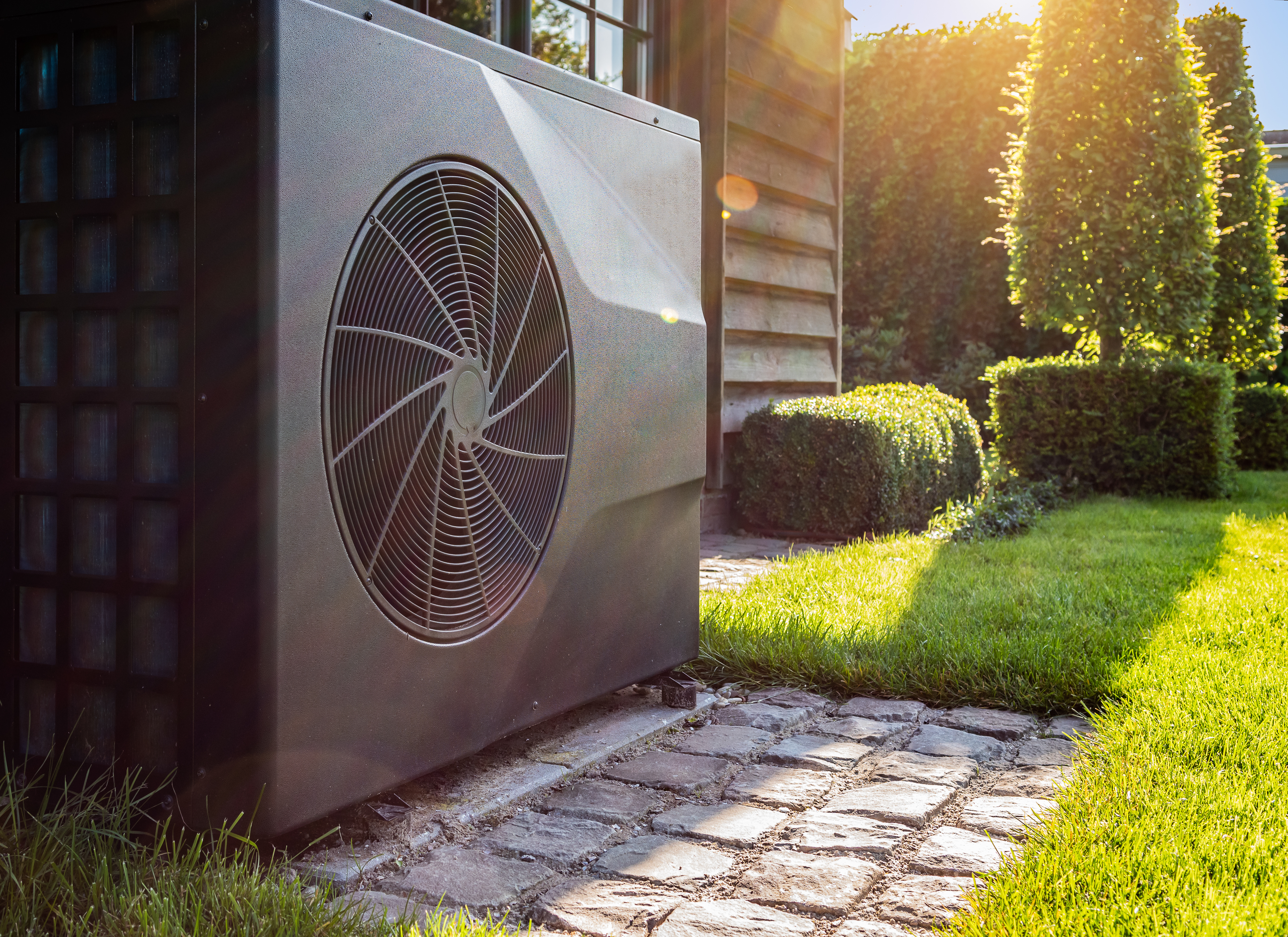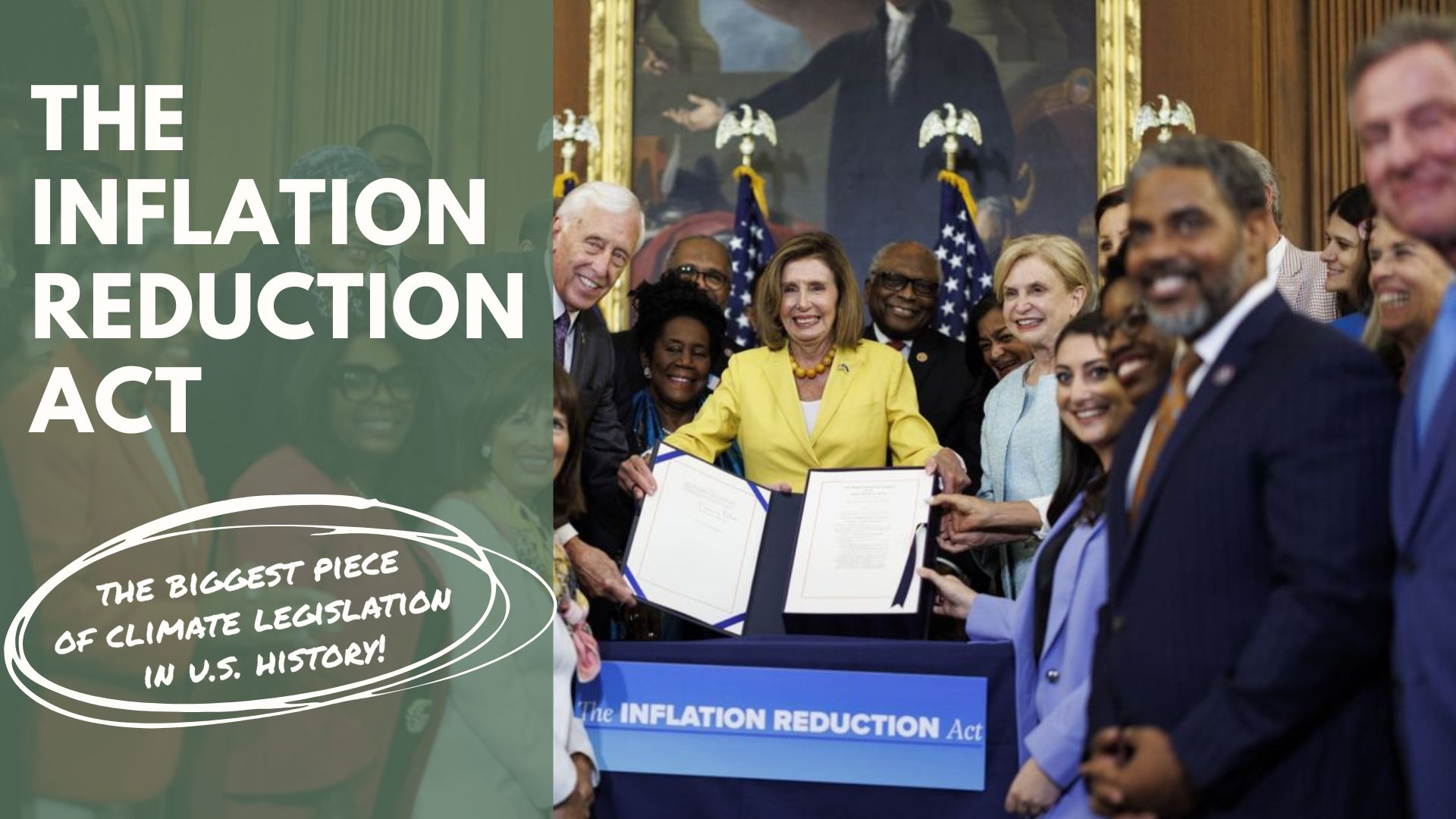As your Representative, I am proud to share the benefits from the Inflation Reduction Act – the biggest climate bill in our nation’s history – which makes economy-wide investments in agriculture, coastal restoration, clean energy, advanced manufacturing, and transportation that will benefit hardworking Maine families. The Inflation Reduction Act is projected to cut greenhouse gas emissions 40% by 2030, making the United States well-positioned to meet its climate goals while also investing in the American economy.
The transition to a green economy is expected to save families an average of $1,000 per year in energy costs. Tens of thousands of Mainers are already eligible for tax credits that will make it easier and more affordable for them to upgrade to more efficient appliances, purchase an electric vehicle, install residential clean energy systems, and save money on their energy bills. All the tax credits are available as of January 2023, and now Mainers can access Efficiency Maine’s home electrification program!
Maine won’t wait. Learn how you can take advantage of the clean energy incentives below!
TAX CREDITS
Energy Efficient Home Improvement
Residential Clean Energy Tax Credit
New Electric Vehicle
Used Electric Vehicle
Leased Electric Vehicle
Electric Vehicle Charger
 The Inflation Reduction Act significantly expands and extends the 25C tax credit, now known as the Energy Efficient Home Improvement Credit. Previously, this tax credit was limited to 10% of your project costs but is now increased to up to 30% and available on an annual basis. After January 1, 2023, qualified energy-efficient improvements to your home may qualify you for tax credits worth up to $3,200. The Inflation Reduction Act significantly expands and extends the 25C tax credit, now known as the Energy Efficient Home Improvement Credit. Previously, this tax credit was limited to 10% of your project costs but is now increased to up to 30% and available on an annual basis. After January 1, 2023, qualified energy-efficient improvements to your home may qualify you for tax credits worth up to $3,200.
For the energy efficiency home improvement credit, the home must be:
- Located in the United States
- An existing home that you improve or add onto, not a new home
Homeowners can claim up to $2,000 for heat pumps, heat pump water heaters, or biomass stoves. Upgrade costs eligible for the credit can include equipment, installation, and labor costs.
Homeowners can also claim up to $1,200 for other weatherization installations and energy-efficient improvements including up to:
- $150 for a home energy audit
- $250 for a new exterior door ($500 total for all exterior doors)
- $600 for new exterior windows and skylights
- $1,200 for insulation
- $600 for an upgraded electrical panel.
For more information, check out this IRS FAQ on the 25C credit and this ENERGY Star Guide on qualifying purchases.
Maine Residents: Efficiency Maine offers an additional rebate of $400-$2,400 for qualifying heat pumps, up to $4,000 - $8,000 for insulation, and up to $950 for qualifying heat pump water heaters.
File Form 5695, Residential Energy Credits Part II, with your tax return to claim the credit. You must claim the credit for the tax year when the property is installed, not merely purchased.
|
|

Rooftop solar is covered under the 25D tax credit and provides Maine households an uncapped 30% tax credit. The cost of solar panel installation depends on a number of factors, such as your home and solar panel size, and where you live.
Those who upgrade their electrical panels in conjunction with rooftop solar are also eligible for a 30% uncapped tax credit. If you decide to go solar, you’re not alone. It is expected that over tens of thousands additional Maine households will install rooftop panels as a result of these incentives.
This 30% credit applies to purchase and installation costs for:
- Solar panels
- Solar water heaters
- Fuel cell property expenditures
- Small wind turbines
- Geothermal heat pumps
- Battery storage systems
The amount of the credit you can take is a percentage of the total improvement expenses in the year of installation with no annual maximum or lifetime limit:
- 30% for 2022 - 2032
- 26% for 2033
- 22% for 2034
In low-income or energy communities, community solar and leased rooftop solar developers may be able to access additional 10% or 20% bonuses. Rather than directly qualifying for these bonuses, homeowners may benefit from them through leasing or subscription community solar models.
For more information, check out this IRS FAQ on the 25D tax credit, this ENERGY Star Guide on qualifying purchases, and this Department of Energy guide to the Rooftop Solar tax credit.
Maine Residents: Efficiency Maine offers an additional rebate of $3,000 for qualifying home geothermal systems.
To claim the credit, file Form 5695, Residential Energy Credits Part II with your tax return.
|
|
Working families will be able to use tax credits that make electric vehicles more affordable. Purchasing an electric vehicle (EV) can save families thousands of dollars on fuel costs over the life of their car. Over their lifetimes, EVs have smaller carbon footprints than gasoline cars and can be plugged into the same type of outlet as your toaster. When you need a charge on the road, there are 53,000 publicly available charging stations across the U.S., including over 503 stations in Maine.
Qualifying buyers are limited to individuals with a modified adjusted gross income (MAGI) less than $150K (or $300K for joint filers).
Qualifying vehicles must have a Manufacturer Suggested Retail Price (MSRP) of less than $55K (or $80K for vans, SUVs, or pick-up trucks), and meet certain battery manufacturing and component criteria. Note: if you take possession of a new clean vehicle on or after April 18, 2023, it must meet critical mineral and battery component requirements to qualify for the credit.
For Vehicles Purchased and Delivered in 2022: Visit this website to see which EVs are eligible.
For Vehicles Purchased and Delivered in 2023 and Later: Visit this website to see which EVs are eligible. This is a list based on information provided by vehicle manufacturers and will be updated.
For more information on the qualification requirements, visit this IRS website.
Maine Residents: Efficiency Maine offers an additional rebate of $500 - $7,500, depending on income, for qualifying new EVs. Customers seeking enhanced rebates based on income must be prequalified before purchase.
To claim the credit, file Form 8936, Qualified Plug-in Electric Drive Motor Vehicle Credit (Including Qualified Two-Wheeled Plug-in Electric Vehicles) with your tax return.
Taxpayers now have the option to transfer this tax credit as a “point of sale rebate” by a dealership to directly lower the price of the vehicle by the credit amount at the time of purchase. This is big news for Maine families who want an upfront down payment on their clean vehicle at the point of sale, rather than wait to claim their credit on their tax return the next year. Clean vehicle dealers and sellers will need to use this online tool to register with IRS and submit time-of-sale reports.
|

Beginning January 1, 2023, if you buy a qualified used electric vehicle (EV) or fuel cell vehicle (FCV) from a licensed dealer for $25,000 or less, you may be eligible for a used clean vehicle tax credit (also referred to as a previously owned clean vehicle tax credit). The credit equals 30% of the sale price up to a maximum credit of $4,000.
Qualifying buyers are limited to individuals with a modified adjusted gross income (MAGI) less than $75K (or $150K for joint filers).
Qualifying vehicles must have a MSRP of less than $25K, weigh less than 14,000 pounds, and be at least two years old (model year must be at least 2 years older than the year of sale.)
Find a list of qualified vehicles here.
Purchases must be made through a dealer who is licensed to sell motor vehicles.
Required information includes:
- Dealer's name and taxpayer ID number
- Buyer's name and taxpayer ID number
- Sale date and sale price
- Maximum credit allowable under IRC 25E
- Vehicle identification number (VIN), unless the vehicle is not assigned one
- Battery capacity
Maine Residents: Efficiency Maine offers an additional rebate of $2,500 for low-income buyers.
To claim the credit, complete Form 8936, Qualified Plug-in Electric Drive Motor Vehicle Credit (Including Qualified Two-Wheeled Plug-in Electric Vehicles and New Clean Vehicles), and file it with your tax return for the year you took possession of the vehicle.
Beginning in 2024, taxpayers have the option to transfer this tax credit as a “point of sale rebate” by a dealership to directly lower the price of the vehicle by the credit amount at the time of purchase. This is big news for Maine families who want an upfront down payment on their clean vehicle at the point of sale, rather than wait to claim their credit on their tax return the next year. Clean vehicle dealers and sellers will need to use this online tool to register with IRS and submit time-of-sale reports.
Leasing an electric vehicle is an additional option consumers can use to take advantage of the Inflation Reduction Act benefits. Through the Commercial Clean Vehicle Tax Credit, businesses that lease electric vehicles (such as dealerships) are eligible for a clean vehicle tax credit of up to $7,500 for qualified vehicles with gross vehicle weight ratings of under 14,000 pounds. Businesses can subsequently pass this credit on to the lessee through lower monthly costs. For more information on leasing a clean vehicle, visit this IRS website.
Qualifying recipients are businesses and tax-exempt organizations, or individuals who lease a qualified vehicle from such business or organization.
Qualifying vehicles are listed here.
The tax incentives for leased vehicles are provided to the dealer, who may pass on the consumer benefits to the lessee through reduced leasing costs. If you are leasing an electric vehicle, you can request information from the dealership on how tax incentives from the Inflation Reduction Act are passed on to you, the customer.

The Inflation Reduction Act incentivizes businesses and homeowners to install EV chargers by expanding the existing tax credit known as the Alternative Fuel Vehicle Refueling Property Credit (30C) and extending it for 10 years. Level 2 residential EV chargers pull electricity from a 240V outlet and can charge your EV overnight, whereas Level 3 public chargers can charge EVs in as little time as 20 minutes.
Homeowners residing in eligible lower-income or rural census tracts can get a tax credit of 30% of the cost of installing a home EV charger on their property—up to a maximum of $1,000.
Qualifying property will be limited to property placed in service within low-income communities or non-urban census tracts. Find out if your location is eligible for this tax credit with guidance from the Department of Energy’s 30C Tax Credit Eligibility Locator (this mapping tool is intended to reflect all eligible locations for the 30C credit but is not formal IRS guidance).
Further, beginning in 2023, the tax credit for businesses and home installations applies to other EV charger equipment like bidirectional (two-way) chargers that turns your car battery into a backup power source for your home. This credit could also help renters by encouraging apartment complexes and other businesses to install EV chargers for residents and customers.
To claim the credit, complete Form 8911, Alternative Fuel Vehicle Refueling Property Credit, and file it with your tax return for the year you placed the EV charger in service. You will need your receipt to show the purchase price of the EV charger and any fees for installation of the charger.
|
ELECTRIFICATION REBATES
Home Electrification and Appliance Rebates
Home Owner Managing Energy Savings Rebate
The Inflation Reduction Act includes $8.8 billion in rebates for home energy efficiency and electrification projects, which is expected to save American households up to $1 billion annually. This legislation provides point-of-sale discounts to low- and moderate-income households across America to electrify their homes. When households make qualifying electrification purchases, they will receive these rebates as immediate, off-the-top discounts. Mainers can now access electrification rebates through Efficiency Maine’s Home Electrification and Appliance Rebates (HEAR) Program!

On September 18, 2024, Maine launched its first federal Home Energy Rebates program, supported by the Inflation Reduction Act. Maine is launching the Home Electrification and Appliance Rebates (HEAR) portion of the rebate program—enabling savings on energy-efficiency improvements.
Maine’s HEAR program — one of two Federal Home Energy Rebate programs — will be overseen by the Maine Governor’s Energy Office and implemented by Efficiency Maine. Efficiency Maine already offers a robust set of incentives on heat pumps and other
upgrades. For that reason, the state is using its HEAR funds to address targeted areas of need. Efficiency Maine is launching its HEAR program in two stages:
Available now: Efficiency Maine will use HEAR funding to offer rebates to:
- Low-income owners of manufactured homes who could save as much as $14,000, including up to:
- $8,000 for a whole-home heat pump for space heating and cooling.
- $4,000 for an electrical panel.
- $2,500 for electrical wiring.
- Multifamily new construction projects of 24 dwelling units or more that can get up to an $8,000 rebate per dwelling unit for heat pumps.
Available later: Maine plans to expand the manufactured home incentives to include moderate-income owners. Smaller new construction multifamily projects will also be able to apply for rebates.
Other Mainers interested in rebates on heat pumps, insulation, and other upgrades can visit the Efficiency Maine website to apply for existing state programs.
|
| |
The Inflation Reduction Act will allocate 36 MILLION to help Maine families undertake comprehensive energy-efficient home improvement projects through the Home Owner Managing Energy Savings (HOMES) rebate program. These rebates will benefit households that have undergone energy efficiency retrofits with modeled or verifiable minimum energy use reductions. The Governor’s Energy office will provide additional guidance on the HOMES rebate program and we will update this website as rebates become available to Maine homeowners.
Please note that homeowners can only receive a rebate from either the HEAR OR the HOMES program—not both. However, it is expected that homeowners will be eligible, pending DOE guidance, to combine both a rebate from either of these two rebate programs with an energy efficiency tax credit at the same time.
Unlike the HEAR program, the HOME rebates program is not income restricted but rather is based on the modeled or measured energy savings from your energy efficiency upgrades.
Qualifying Households:
The energy-saving incentive tiers are as follows:
- Retrofits with modeled energy system savings of 35% or more: the lesser of $4,000 or 50% of project costs.
- Retrofits with modeled energy system savings of 20-34%: the lesser of $2,000 or 50% of project costs.
- Retrofits with measured energy savings of 15% or more: the lesser of $100 per percent of energy saved or 50% of project cost.
Incentives for low-income households (less than 80% of Area Median Income) are doubled, or up to 80% of project costs.
Additional Resources:
Note: This resource page was compiled to raise awareness of new clean energy and electrification incentives for constituents and is not intended to substitute for professional financial advice.



 The Inflation Reduction Act significantly expands and extends the 25C tax credit, now known as the Energy Efficient Home Improvement Credit. Previously, this tax credit was limited to 10% of your project costs but is now increased to up to 30% and available on an annual basis. After January 1, 2023, qualified energy-efficient improvements to your home may qualify you for tax credits worth up to $3,200.
The Inflation Reduction Act significantly expands and extends the 25C tax credit, now known as the Energy Efficient Home Improvement Credit. Previously, this tax credit was limited to 10% of your project costs but is now increased to up to 30% and available on an annual basis. After January 1, 2023, qualified energy-efficient improvements to your home may qualify you for tax credits worth up to $3,200.


